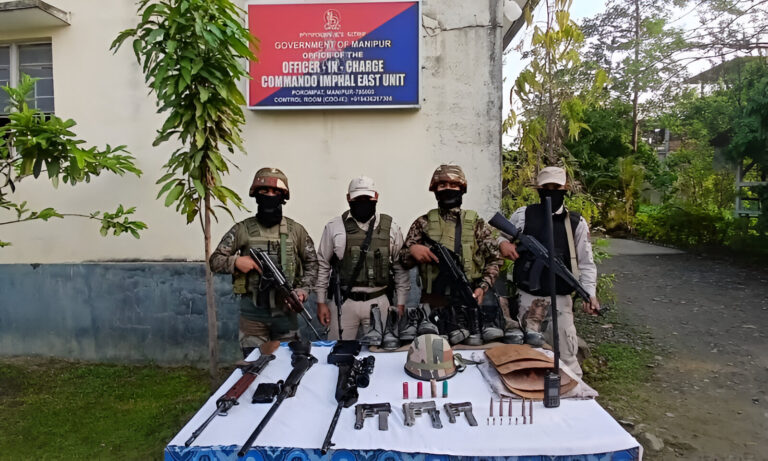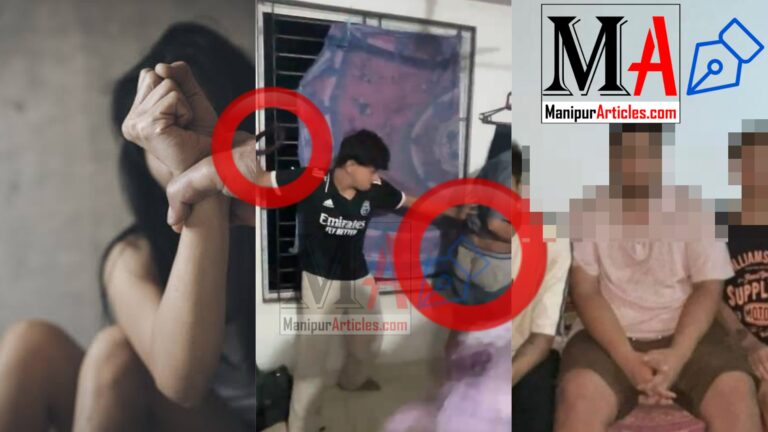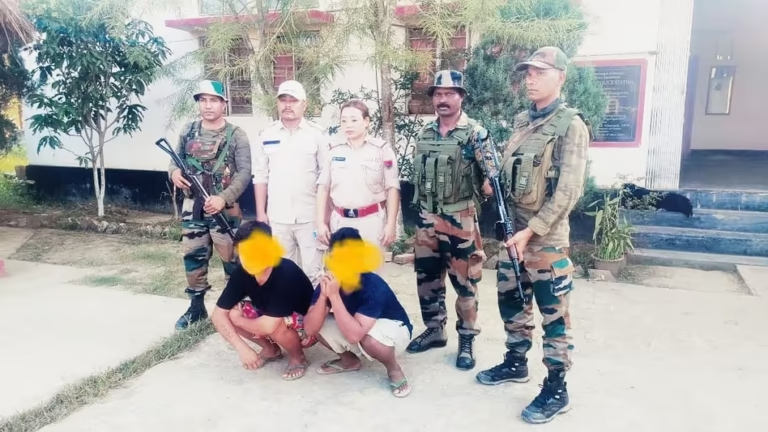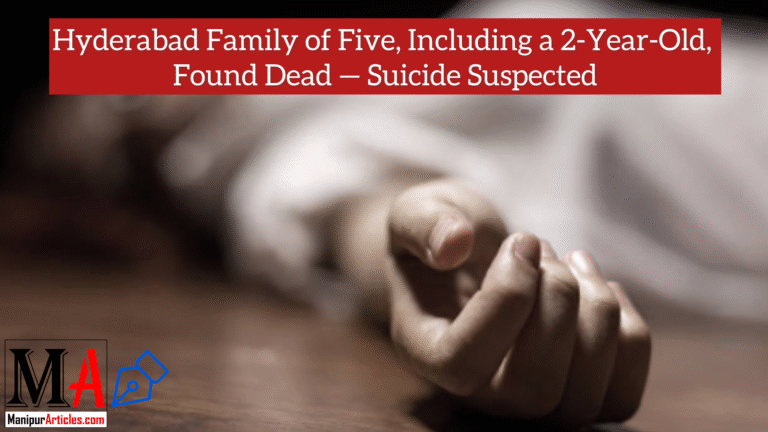Fresh Round of Talks Between MHA and Meitei Civil Society Groups Begins in Delhi
Summary of the News Article
Three major Meitei civil society organizations—COCOMI, AMUCO, and FOCS—have formed a unified 19-member delegation to meet with Ministry of Home Affairs (MHA) officials in New Delhi on June 30, 2025. Their focus is on addressing the sustained crisis in Manipur, now under President’s Rule, with key demands including restoring territorial integrity, reopening highways, resettling internally displaced persons (IDPs) in their native homes, and ensuring security for farmers in peripheral areas impacted by ethnic tensions. Led by MHA Northeast adviser A.K. Mishra and IB joint director Rajesh Kamble, the dialogue marks a new phase of collective advocacy for durable peace and governance in the northeast state
Introduction: Why This Talks Matter
Ever wondered why a government meeting might shake the calm in far-off places? Picture the Ministry of Home Affairs (MHA) in New Delhi bustling as representatives from Manipur arrive. On June 30, 2025, three leading Meitei civil society organizations—COCOMI, AMUCO, and FOCS—came together to hold a crucial conversation with federal authorities. This wasn’t business as usual. It was a moment brimming with hope, tensions, and a shared plea for stability.
i corner.
Who’s at the Table—and Why Collaboration Matters
Meet the Delegation
- COCOMI: Coordinating Committee on Manipur Integrity
- AMUCO: All Manipur United Clubs’ Organisation
- FOCS: Federation of Civil Society Organisations
Together they formed a 19-member delegation: 7 from AMUCO, 7 from COCOMI, and 5 from FOCS
Why This Third Round Is a Big Deal
This isn’t their first rodeo—rounds of discussions happened in April and May. But this time? They arrived as a united front, amplifying their voice. Unity means strength, especially when all parties recognize what hangs in the balance.
On the Other Side
The MHA’s side featured Northeast adviser A.K. Mishra, IB joint director Rajesh Kamble, and senior officers—an all-star bureaucratic lineup . This signals seriousness from Delhi: they’re listening.
The Seven Heavy Topics on the Agenda
Here’s what Meitei CSOs came armed with:
- State Territorial Integrity
Ensuring the boundaries of Manipur remain respected by all—including rebel or militant groups. - Free Movement on Highways
Highways in northeastern India are lifelines. Blockades or restrictions hit trade, peace, and community trust - IDP Resettlement in Native Lands
Not temporary camps, but a sustainable, dignified return to homes—rebuilding from the ground up. - Security for Peripheral Farmers
Meitei farmers fear planting seeds in uncertain times—they want safe access to farmland - No Legitimacy to Militant SoO Outfits
The Meitei delegation rejects any legal recognition or negotiation with militant outfits under the Suspension of Operation (SoO) until peace is secured - NRC Demand
There was reportedly a push to implement a National Register of Citizens (NRC) to identify illegal migrants—raising tensions but signalling urgency to protect identity - Gwaltabi Issue (Media Censorship Incident)
On May 20, media faced pressure during a bus event—the CSOs want full accountability and clarity on when state machinery restricts press freedom
Deeper Dive: The Stakes of Each Demand
Territorial Integrity
This is foundational. When borders aren’t respected, uncertainty seeps in. Manipur’s integrity is about unity—not just geographically but socially. Ensuring no land is contested prevents new flashpoints.
Highways: More Than Roads
Think of highways like arteries—any blockage chokes life out of the economy. People can’t move; goods can’t travel. Social trust collapses where movement is restricted. These highways need to flow again.
IDP Resettlement
IDPs living in makeshift shelters for years—this isn’t rehabilitation. It’s a humanitarian failure. Letting people go “home” is symbolic and healing—a path to restore normal lives.
Farmer Safety
Agriculture isn’t just livelihood—it’s soul of Manipur. If farmers can’t plant, the entire food ecosystem risks collapse. And beyond produce: it’s about confidence in a state ensuring its citizen’s safety.
Rejecting SoO Militant Legitimization
Meitei CSOs are signaling zero tolerance for giving insurgent groups legitimacy under SoO while the ethnic divide seeps deeper. Peace comes from justice—not forced ceasefires.
NRC Push
This one’s thorny. NRC is controversial and could tear wounds wider. Some see it as tool to preserve security; others see threat to inclusivity. The double-edged sword of ethnonational policy.
Media Freedom: Gwaltabi Flashpoint
The suppression of media on May 20 reflects distrust. Transparency matters. If journalists are silenced, accountability dies. Meiteis want assurances that information flows freely.
, any bilateral pact may wobble.
What to Watch in the Coming Weeks
- July 4: MHA meets Kuki SoO groups. See if success parallels Meitei talk.
- Implementation Milestones: Are farmers protected by month-end? Are highways seeing traffic?
- IDP Numbers: Any official numbers—how many have returned? Under what conditions?
- Media Reports: Is journalism freer, or are restrictions persisting?
Conclusion: Dialogue as a Beacon
India turns a spotlight on Manipur today—not through gunfire, but through talks. This isn’t just another round; it’s a litmus test. Can federal governance, civil unity, and sincere conversation steer a divided land toward peace?
Only time will tell. But if highways open, homes are rebuilt, and fields are sown again, history might write this down as a turning point.
Frequently Asked Questions (FAQs)
Q1: Why do Meitei CSOs demand free movement on highways?
Highways in Manipur are vital arteries for trade, movement, and daily life. Blockades violate citizens’ rights and hamper economic and social stability
Q2: What’s the significance of IDP resettlement?
IDPs have lived for months in camps. Returning them home is about dignity, not displacement. It’s a key measure of actual peace—beyond words.
Q3: Why fund NRC in Manipur?
Meitei groups want to identify illegal immigrants. Supporters argue it secures indigenous rights; critics fear it could marginalize vulnerable communities
Q4: Who are these Meitei organizations?
- COCOMI: Campaigns for Manipur’s territorial integrity
- AMUCO: Focuses on unified development
- FOCS: Civil society group advocating social welfare and safety
Q5: What next if talks fail?
Failure might see renewed protests, hardened ethnic division, or wider unrest. Success, however, could anchor peace—even reconciliation.





